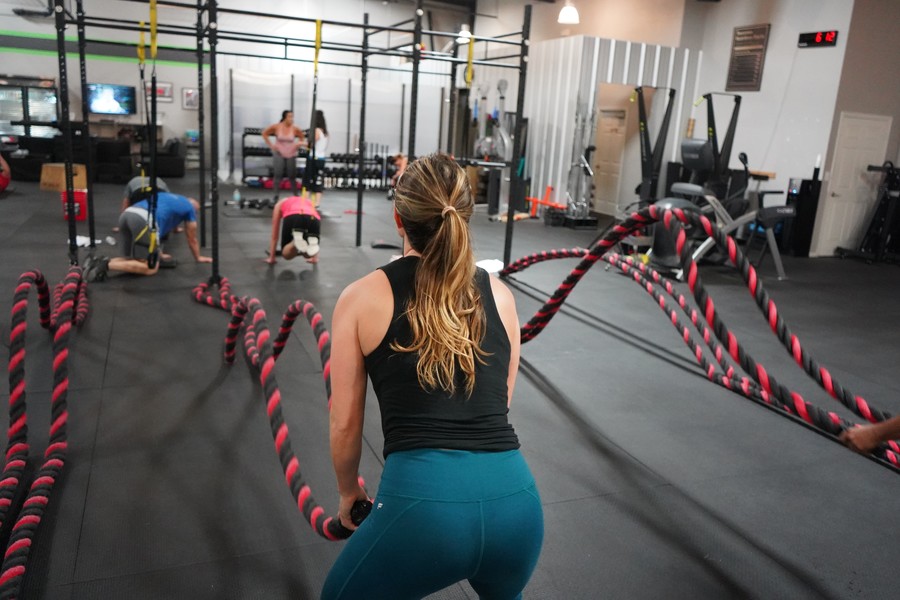Apr 4, 2019
 Cohen said that it's important to not make a habit out of exercising on an empty stomach.
Cohen said that it's important to not make a habit out of exercising on an empty stomach.
"If you haven't eaten in a long time, your body is in a fasted state. Normally, your body will use glucose for fuel and begin to break down muscle glycogen to deliver the glucose your body needs for exercise. In a fasted state, the muscle glycogen will be depleted sooner. Your body will then turn to breaking down fats for the energy it needs," Cohen said.
"This can lead to ketosis, or keto-acid buildup in the blood, which can be harmful to the kidneys over the long term and cause fatigue and dizziness," she said. "While exercising on an empty stomach may burn fat, it does not seem to be beneficial in the long run. And, if the fatigue means that you are not able to exercise at full performance, then you will also not be able to sustain as effective a workout."
Try eating eggs, cereal and milk, toast with peanut butter, or fruit and yogurt to fuel a morning workout, Cohen recommended.
What to eat before, during and after a workout
edition.cnn.com - Scientists have long known that what you eat before, during and after you exercise can make or break a workout and possibly affect your fitness results. So what do nutritionists recommend to munch on? It turns out that quality carbohydrates are important pre-workout and lean proteins post-workout, experts say.

What to eat before exercise
Before you exercise, eat carbs, but not too much, said Nancy Cohen, a professor in the department of nutrition at the University of Massachusetts in Amherst.
She recommended consuming 1 to 4 grams of carbohydrates per every 2.2 pounds of body weight if you are planning to exercise for longer than an hour. To put that in perspective, a medium banana has about 27 grams of total carbohydrates.
The Dietary Guidelines for Americans recommends that if you get 2,000 calories a day, aim to consume between 225 and 325 grams of carbohydrates, according to the Mayo Clinic.
When should you eat? About an hour to four hours before working out, Cohen said.
A review paper by researchers at the University of Sydney in Australia suggests that carbohydrate ingestion can improve endurance exerciseperformance. The paper was published in the Journal of Nutrition in 2011.
The researchers assessed 50 previous single- or double-blind, randomized studies on carbohydrate ingestion and endurance exercise. The researchers concluded that the data in the studies provide evidence that consuming carbohydrates can enhance endurance exercise performance in adults.
Research on how quality carbs can influence exercise performance -- especially endurance exercise -- dates to the 1930s.
"By eating carbohydrate-rich foods that are low in fat and low or moderate in protein, you can make sure you have enough muscle glycogen as fuel for your physical activity. This might include low-fat granola bars, fig bars, a peanut butter and jelly sandwich, banana, yogurt, pasta or other high-carbohydrate foods," Cohen said.
"Sufficient fluids are also important," she said. "In general, you can consume 5 to 10 milliliters of water per kilogram of body weight in the two to four hours before a workout."
"Sufficient fluids are also important," she said. "In general, you can consume 5 to 10 milliliters of water per kilogram of body weight in the two to four hours before a workout."
 Cohen said that it's important to not make a habit out of exercising on an empty stomach.
Cohen said that it's important to not make a habit out of exercising on an empty stomach."If you haven't eaten in a long time, your body is in a fasted state. Normally, your body will use glucose for fuel and begin to break down muscle glycogen to deliver the glucose your body needs for exercise. In a fasted state, the muscle glycogen will be depleted sooner. Your body will then turn to breaking down fats for the energy it needs," Cohen said.
"This can lead to ketosis, or keto-acid buildup in the blood, which can be harmful to the kidneys over the long term and cause fatigue and dizziness," she said. "While exercising on an empty stomach may burn fat, it does not seem to be beneficial in the long run. And, if the fatigue means that you are not able to exercise at full performance, then you will also not be able to sustain as effective a workout."
Try eating eggs, cereal and milk, toast with peanut butter, or fruit and yogurt to fuel a morning workout, Cohen recommended.
What to eat during exercise
What to eat after exercise










